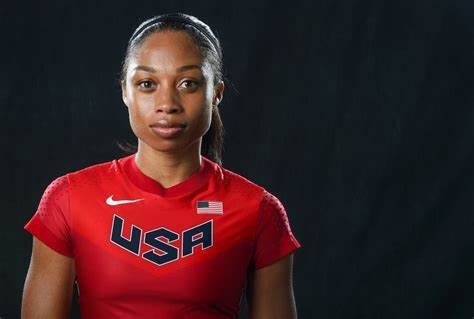Question: Along similar lines, did your conflict with Nike over its maternity policy affect your perspective on the reality of the relationship between athletes and brand sponsors? The veil has been lifted. As a younger athlete, I just wasn't aware. There's so much thrown at you, and it's easy to buy in. When I was with Nike, it was family this, family that, this is the Nike family. You feel that that's real, and then you see the other side of things, and it's completely different. To me there's so much more value than financial. Even my partnership with Athleta, I don't do things anymore just because I need to. Now it's about: Will I have a seat at the table? Does it matter to you what I do beyond running fast? Going to Athleta, I was at a place in my career where supporting women and girls mattered to me, and they are actually doing things that are important in that space, like not Photoshopping their images. They're showing what a healthy woman looks like. That's important to me, and so is being supported beyond being just an athlete, and also feeling that when I bring something it's going to be listened to. I've had experiences with Nike in which I brought an idea to the table, and it seemed to be listened to, but then it didn't go anywhere. I want to feel that I'm taken seriously.

This may be another of those things that's hard to articulate, but can you tell me what it feels like to win a gold medal? You know, it's interesting. It was my third Olympics. I had two silver medals at the first two Olympics, and I think I had built winning an individual gold up to be on such a pedestal that when I did it, it almost didn't match the feeling of what I had dreamed it to be. I mean, I thought life was going to be different: gold medalist, nothing is ever the same. And then it's like everything is kind of the same — it's on to another goal that you set for yourself. Because you come home, and not too much changes.
译文由可可原创,仅供学习交流使用,未经许可请勿转载。











